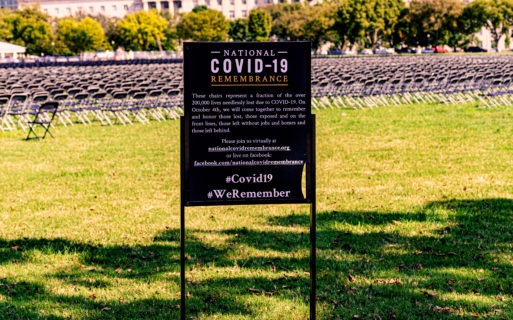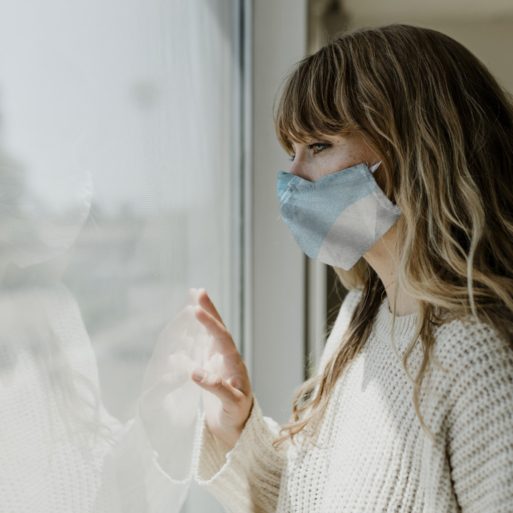With vaccinations rolling out swiftly across the country, a post-pandemic world is finally starting to look possible. However, many experts warn that the end of COVID-19 won’t necessarily spell a return to normalcy. In fact, some organizations in the U.S. and Canada have called for a national grief strategy to begin addressing the widespread trauma caused by the pandemic.

The National COVID-19 Remembrance in Washington, D.C. Grief experts say the remembrance is a good start, but we need to do more.
Credit: Ted Eytan
In the wake of a global pandemic that has taken almost half a million lives in the U.S. alone, our already limited resources may be met with an unprecedented need for mental health support. Because of this, the National Hospice and Palliative Care Organization and the Social Work Hospice & Palliative Care Network have issued a call for a national grief strategy in the U.S. The strategy is inspired by a similar proposal put forth by the Canadian Virtual Hospice and Canadian Grief Alliance in Canada.
According to the SWHPCN, the national grief strategy would aim to expand access to mental health resources and develop “grief literacy” among American citizens. In its proposal, the organization noted that the grief caused by COVID-19 can be complicated by the necessary social distancing restrictions in place during the pandemic. “As we are realizing that COVID-19 is here to stay, we are recognizing its impact on how we grieve: the visiting and goodbyes that didn’t occur, the family gatherings that weren’t allowed, the funeral rites limited or delayed, the grief suffered in isolation.”
In their supporting statement, the NHPCO also emphasized the immense stress and trauma experienced by frontline workers during the pandemic. “We have an opportunity to address this crisis by mobilizing resources and education to assist people in navigating the grief that lies ahead, and in studying the effects of such a collective experience,” the organization stated.

Even for those who have not lost loved ones in the COVID-19 pandemic, isolation can take an intense emotional toll.
Even before COVID-19, resources were scarce for those experiencing grief and loss in the U.S. Mental health programs and trauma response options are few and far between, and many are significantly underfunded. Even where resources are available, there are often barriers to access such as cost, insurance, location and scheduling.
America’s cultural taboo around death can also make it difficult to access resources for grieving — even informal support, such as talking to friends and family. Fear and denial of COVID-19 can affect how much support an individual receives, while non-COVID deaths are often minimized and overlooked.
Almost a year into the pandemic, even those who have not lost loved ones to COVID-19 or other causes are feeling the effects of isolation, stress and upheaval. While the world struggles to regain some sense of normalcy, many have recognized that full recovery on a deeper, emotional level is still a long way off. Without proper resources in place, the U.S. could be facing a “second pandemic”: one of untreated grief.

 Hospice Groups Are Calling for a National Grief Strategy
Hospice Groups Are Calling for a National Grief Strategy


 “Hand to Earth” by Andy Goldsworthy
“Hand to Earth” by Andy Goldsworthy

 Caring for a Dying Loved One? Be Gentle With Yourself.
Caring for a Dying Loved One? Be Gentle With Yourself.














